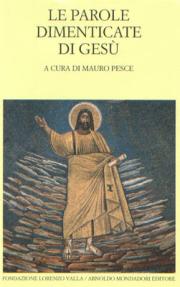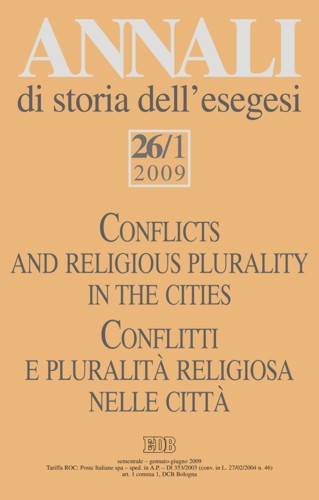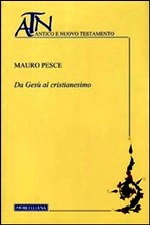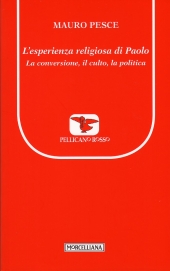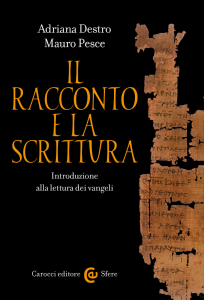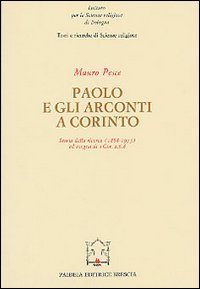Jacob Neusner, REFORM JUDAISM: WHY IT IS NECESSARY
- Dettagli
- Categoria: Documenti
- Pubblicato Venerdì, 21 Settembre 2012 10:29
- Visite: 14837
Reform Judaism for our Day:
Why it is necessary
Jacob Neusner
Bard College
The Bamberger Lecture
Hebrew Union College-Jewish Institute of Religion
NYC December 1 2009
To explain the personal context for speaking about the future of Reform Judaism I begin with a short story. Once upon a time there was a young man, a third generation American, who was raised in a classical Reform temple, who in the Reform manner celebrated becoming a bar mitzvah and who was confirmed in the Reform rite. He was inspired by his Temple's Reform rabbi to become a Reform rabbi. He held national office in the National Federation of Temple Youth (NFTY), and he was admitted to Hebrew Union College This prince of the Reform realm — on the very day he was supposed to begin studies at Hebrew Union College — entered the Jewish Theological Seminary of America. To do so he agreed to give up the lobster dinners, the veal parmigian, and the b.l.t. sandwiches that he had loved and even to quit smoking on the Sabbath, as admission to JTSA demanded.
Why all this? It was not a drastic change of convictions. He was not a baal teshuvah — one who reverted to the true Torah and acted out his new faith. His reason for apostasy was not so profound as that. He thought he would get a better Jewish education at JTS than at HUC. To that goal everything else was secondary. Six years later he was graduated by JTS as a Conservative rabbi.
As you surely guessed I am the man. I choose this occasion to explain why I have come back to the convictions (if not to the cuisine) of my youth – not because they are expedient but because they are compelling.
After fifty years I affirm Reform Judaism as the American Judaism of choice and of necessity. I maintain that if Reform Judaism did not exist today, we American Jews should have to create it. Now therefore is a time to reaffirm Reform Judaism for tomorrow. That is what I learned in fifty years of apostasy. Reform Judaism answers the urgent question confronting American Jews in the American context.
To explain why I have found my way back to the Reform heartland of American Judaism, I do not propose to appeal to the surveys that count Reform as the most numerous Judaism in the USA. That would merely echo the demographic triumphalism of Orthodox Jews who say that the future of American Judaism can be calculated from the number of baby carriages and coffins in each movement that that they therefore are on the rise and the rest of us are on the way down literally.
Demography matters, but I do not offer a triumphalist reason for Reform, following the obnoxious example of those Orthodox Jews who tell the rest of us we are dying out and the sooner the better. The numbers of American Jews who identify themselves as Reform are formidable, but I do not ask demographic findings to prove theological truths. Rather I venture to explain the findings of demography by appeal to the ideas that people hold and whether those ideas conform to the those ideas to the intellectual circumstance in which they find themselves. Reformist Judaisms — not just Reform Judaism but its integrationist cousins, — offer religious systems that compete favorably with other segregationist Judaisms.
First, since I use some unfamiliar language, I briefly define my terms. What, exactly, do I mean by [1] a religious system, [2] a Judaism and [3] a reformist Judaism?
[1] A religious system is a set of ideas and practices that cohere and animate the life of a group, a community. A religious system holds together by focusing on an urgent question and supplies that question with a self-evidently valid answer. The answer is repeated in the beliefs and behavior that comprise the system. So the key is, A religious system says the same thing about many things. A repeated message expressed through many media would be, for example, the election of Israel, the people, as God's chosen, a motif that is expressed in nearly all transactions of nearly all Judaisms.
[2] A Judaism is a way of life and a world view that embody and explain the shared life of people who regard themselves as the Israel of which Scripture speaks. A community of Judaism commonly calls itself "Israel." It is that appeal to the status of being Israel that marks a religious system as a Judaism.
[3] A reformist Judaism is any Judaic religious system that takes as its urgent question the issue of how to be Jewish and something else. A reformist Judaism joins practice of Judaism with another cultural affinity, for instance how to be American by nationality and Jewish by communal culture and religion — Jewish and American, Jewish and French, or Judaic and Buddhist, to take a popular example. Reformist Judaisms are culturally integrationist. By that definition even the modern Orthodox Judaisms of the USA are a branch, a species, of the same genus, reform Judaism. They make space for other commitments besides those of Judaism, teach their children something beyond Torah for instance, but Orthodox Judaisms that accommodate only one culture, a Jewish one, segregate themselves and are called self-segregationist. They do not belong to the reform genus.
A reformist Judaism treats reform as a verb (as Leonard Fein proposed a generation ago) — a verb and not a noun. A Judaism that reforms the received tradition to accommodate the ambient cultural and social order is a reformist Judaism. The outcome of that reform to begin with is the Reform Judaism with a capital R that is embodied in the institutions that we know as HUC-JIR and its companions.
By these definitions there are only two categories of Judaic religious systems in existence today: integrationist and self-segregationist. There is a single corpus of Judaisms that affirm the integration of Judaism and its faithful into the matrix of contemporary secular culture. This is the reformist genus of which Reform Judaism is a primary component. There is yet another corpus of Judaisms that segregate the faithful from all other religious and secular communities in the world today. Here is self-segregationist Judaism and there is integrationist Judaism.
By that definition the various integrationist Judaisms encompass Reform, Conservative, Reconstructionist, and New Age Judaisms, and so called modern Orthodox or self-defined "traditional" Judaisms as well. l see no categorical distinctions between Conservative Judaism, with its sporadic engagement with the authoritative Halakhah, and modern Orthodox Judaism, with its concern for the issues of modernity and its courageous effort to mediate between tradition and modernity. Integrationist Orthodoxy is a reformist Judaism and differs from Reform Judaism in degree, not in kind. But a reformist Judaism differs fundamentally from any self-segregationist Orthodoxy, whether of the Hasidic or Habad or the Mitnagdic-yeshiva variety of Agudat Israel. Self-segregationist Orthodox Judaisms flourish in the state of Israel and take root everywhere Judaism is practiced, integrationist Judaisms predominate in the USA and in Latin America.
At issue in self-segregation is social vision of a Judaic religious system. That is not a matter of outreach. The yeshivas recruit students and seek to transform them. They do not teach science or history in the yeshivas, only Midrash and Talmud. A Judaism can seek to attract newcomers without qualifying as integrationist. It is what happens within the group that matters. Habad invests in outreach but measures success by the number of black hats it assembles for its great assemblies. Habad does not accommodate to modernity but seeks to reverse its effects.
With these definitions in hand let us return to my claim that if we had no Reform Judaism today we should have to invent it. I maintain that Reform Judaism persuasively answers the particular questions that American Jews find urgent. It prides itself on its relevance to the contemporary social order, to the issues that engage the Jews to whom it speaks. Specifically, Reform Judaism began and now thrives in America among Jews who want to be Jewish and also to make their lives in the American mainstream. It has found a way to do so, and because it answers an urgent question facing us, reforming Judaism is as necessary now as it was a century and a half ago – how to be Jewish and also a citizen in a modern democratic republic.
A reformist Judaism speaks to Jewish generals and admirals, U. S. Senators and Representatives, Judges and cabinet secretaries. Imagine the Jewish scene in the USA if the only Judaism on offer were one or another of the self-segregationist Torah-true Judaisms — systems that permit no negotiation between the ambient culture and the norms of the sole valid Judaism. Would a self-segregationist Orthodox Jew wearing a big black hat consider running for president as Senator Lieberman did for a time? But the Orthodox Judaism of Senator Lieberman does not include wearing Jewish clothing, a black hat for example. To take a weightier example: there is a range of behaviors that are impossible in modern America for the self-segregated, shaking a woman's hands for example.
Reformist Judaisms respond to the aspirations of most American Jews that practice a Judaism, and self-segregationist Judaisms speak to the rest. Most American Jews want to be Jewish. Among them many want to practice a Judaism. And the vast majority want to be Americans not only by citizenship but by culture. So they respond to systems of Judaic thought that explain how to be Jewish and American — how to be American but not so American as to dismiss the Jewish difference as negligible, how to be Jewish but not so Jewish that in our lives America stands for citizenship but not culture — merely another version of Canada.
American Jews see themselves as both American and Jewish. They dress like other Americans, speak the language in the accent of other Americans, and associate with other Americans. Reform Judaism presented itself from the very beginning as lthe Judaism defined by the American condition. It set forth a Judaic religious system for Americans by culture and language not merely by the passport.
That is why by these definitions reformist Judaisms form the bulk of contemporary communities of Judaism. And for that same good reason the position of Reform Judaism with a capital R grows ever more prominent.
If American Jews didn't want to be Jewish, they could — and today many do — easily find a place in a variety of other religious communities and cultures. Many Jews do reckon themselves part of a secular cultural community defined by music art drama and learning, not solely by prayer and study of holy books. And yet many of these same people derive satisfaction in study and prayer an other forms of unique Jewish expression, They do not shut down one part of their brain to accommodate other parts,
If American Jews didn't want to be Americans in a cultural framework, they could emigrate to the state of Israel or affiliate with a self-segregationist commune in domestic Orthodoxy. The numbers of those who exercise either option — give up the Judaic option, abandon the American one — are negligible in proportion to the size of the Reform and reformist components of a community of six or seven millions.
What conclusion do I draw from these diverse Judaisms? That Judaism can be so diverse and so dynamic attests to the power of the ideas that comprise Reform Judaism in America, and in my opinion it saved Judaism in America for the vest majority that affirmed the promise of modernity. We cannot sustain a Judaism strictly on the basis of nostalgia,
So after a half century I return to my Reform roots. In the wilderness I have gained perspective on the situation of Judaisms in America. True, I am moved by sentiment, hearing the grand old songs of the Union Hymnal and repeating the stately cadences of the Union Prayer-book, which I knew by heart in my youth. But these are matters of taste, subjective judgments of no concern to any community of Judaism. What do I conceive to form the principal contribution and the primary task of Reform Judaism now and in the future?
I answer the question in negative, then in positive terms: what should Reform Judaism not do, then what defines its principal task?
It should not adopt as uniquely authentic to a single Judaism the norms of Halakhic Orthodoxy and negotiate on someone else's terms. Over the past half-century Reform and Conservative Judaisms have taken the path of pseudo-Orthodoxy and adopted some traditional rites while rejecting others. The outcome of this reversion to tradition was to present Reform Judaism as less authentically Judaic than Orthodoxy. The younger generation perceived tradition to trump reason and "returned" to Judaism defined as Orthodox Judaism. Reform and Conservative Judaisms ended up losing the most committed minorities of their faithful. I refer to two opposed constituencies. First is the tiny minority of Reform and Conservative families that opted for self-segregationist Orthodoxy as their Judaism and the somewhat larger minority that gave up one integrationist Judaism in favor of another, somewhat more rigorous system. Second is the minority that affirmed the classical definition of integrationist Judaisms, and saw nothing wrong with the program of Reform and Conservative Judaisms as is.
By their witness abandoning the conception of a Judaic reformation and adopting the norms of Orthodoxy the reversionists delegitimized the large majority that did not choose the route of return. What was left behind was not just synagogues denied their most active constituents but the self-affirmation that comes with the presence of those who say by their personal participation, "This is authentic Judaism, this is Judaism as it an and should be. There is no reason for another Judaism."
So in Conservative Judaism has lost the minority that affirmed the Judaic component of the systemic message. That group chose the Orthodox or even the Haredi option. The majority that did not then chose the Reform option. They chose to disaffiliate. The children of Conservative synagogues in large numbers have divided up and abandoned their origins. The center has not held and will not hold. The sorry state of Conservative Judaism — once the giant of American Judaisms — proves the point.
So much for the negative judgment. What do I perceive as the positive intellectual program of Reform Judaism for the next fifty years? It is to revert to its roots in reason and criticism. Reform Judaism began among critical thinkers, theologians who followed the requirements of reason and rationality. It appealed to historical fact as the foundation for authentic Judaism and invoked historical fact to justify the Judaic reformation. In the struggle between reason and science and revelation and faith, Reform Judaism draws on deep roots of rationality. It appealed to critical analysis not blind faith. Reform justified change through historical criticism and with arguments based on this worldly reason and demonstrable fact. The task of Reform Judaism today is captured in the title of a book published last year under the pseudonym of R. D. Gold, entitled Bondage of the Mind. How Old Testament Fundamentalism shackles the mind and enslaves the spirit, Toward a better understanding of the religious experience (Menlo Park Ca 2008: Aldus Books). Gold says:
For the past twenty five hundred years there have been the two major strands of thought running through Western civilization. In one camp are those who believe the truth about the world can be found through scholarly inquiry, evidence and reason, that truth emerges through the use of the human mind. In the other camp are those who believe that truth about the world can be found only in God's word and God's will, handed down from on high in divine revelation, and that this revealed truth trumps reason...
Gold devotes his book to a negative answer to the question, "Are the doctrines of Orthodox Judaism really true?" He pays Orthodoxy the compliment of taking it seriously and at face value. But he concludes with a theological affirmation in the Reconstructionist tradition. It is time for Reform to join the issue of fundamentalism that it addressed at its beginning. Its task is intellectual not political and at stake is religious truth not social expediency.
Reform Jews pay undue respect to Orthodoxy for its theological fundamentalism. We see this in the major gifts flowing to Habad institutions from Reform Jews. Reform Jews reject Orthodoxy for its externalities — the dress code, the separation of the sexes, the extremes of kashrus and Sabbath observance the paranoid distrust of gentiles, the chubbiness, The rejection of Orthodoxy on such a basis is superficial and bigoted and leaves Orthodoxy unchallenged on the front of theology — a far more serious matter.
The challenge facing reformist Judaisms, whether Reform or Reconstructionist or New Age, is to frame a theology that accomplishes intellectually what Reform and Reconstructionist Judaisms brought about in practical terms. Three intellectual tasks facing the next generation of Reform Judaism, which will flourish in the age of reformist dominance. Reform Judaism has tended to apologize for itself to the other Judaisms of the age, to see itself as an inferior brand of Judaism — a set of compromises of convenience. My advice is the opposite: revert to the clarity and courage — if not to the details — of the Pittsburgh Platform and assert the right and duty of Reform in the face of contempt. Reform Judaism has apologized itself into the front rank of contemporary Judaisms, so it must be saying something that is true to the experience of its vast constituency. Specify what it is and build on that. So much for the negative task, to stop apologizing. What about the affirmative task? Of what should the program of the next half century be comprised?
I see three components of the intellectual platform on which Reform Judaism should take its stand, but I offer counsel on shaping the future.
[1] The first plank in the platform is to affirm the tradition of reason and criticism that characterized Reform Judaism from its inception. Reform Judaism founded modern learning in Judaism and has no business to do with fundamentalism. Its Scripture was not dictated word for word by a supernatural being from outer space. Its theology does not promise pie in the sky when you die. Reform Judaism cannot revert and sponsor reversionism. But Reform Judaism should not commit the error of being too traditional and not Jewish enough, to cite the criticism of a synagogue told to me by its rabbi. The power of Reform Judaism from its nineteenth century origins was its courage to say, that's the Judaism of the past, we stand for the Judaism of today.
[2] The second plank is to expand the realm of the secular that Reform Judaism defined as legitimate. Like Reconstructionism it should advance modes of Jewish cultural expression in secular media such as literature and poetry, art, music, and drama. Scholarship that is not a cover for apologetics should define the education of rabbis and teachers. Reform Judaism holds that one can be both Jewish and many other things — that affirmation of the realm or the secular forms the foundation of Reform. Reform and Reconstructionist Judaisms accord to the Halakhah a voice but not a veto. That is the first step in the formulation of a realm of secular culture of Jewishness.
[3] The third plank is to affirm the tradition of individualism that Reform Judaism has fostered, to validate the individual conscience that Reform recognized. I was brought up to affirm what I found personally meaningful and to dismiss as irrelevant what did not fit. The criterion of individual meaning meant to measure success by framing a program true to the criteria of reason and truth. But Reform Judaism must find the way for forming a consensus and establishing norms.
These three commitments of Reform and reformist Judaism — criticism, the provision of space for a secular culture, and commitment to truth join to form a theory of humanity: what does it mean to be a human being? Reason and criticism, the secular dimension of the culture, and the autonomy of the Jewish individual — these secure the freedom of the Israelite or Jewish man and woman. The purpose of Judaism guides us. I find it in the Torah's conception of who and what we are as human beings — portrayed by Scripture as "in our image, after our likeness" — "like God," which Rashi glosses as "creators of worlds." The way we create worlds of meaning and truth is by exercising our power of rational thought and our autonomy of judgment, our capacity to think for ourselves and our non-negotiable capacity to be free. These represent what the reformation of Judaism brings about in the setting of this ancient and enduring tradition and explain why, if there were no Reform Judaism and no reformist Judaisms, we should have to create them today. But happily we don't have to.



